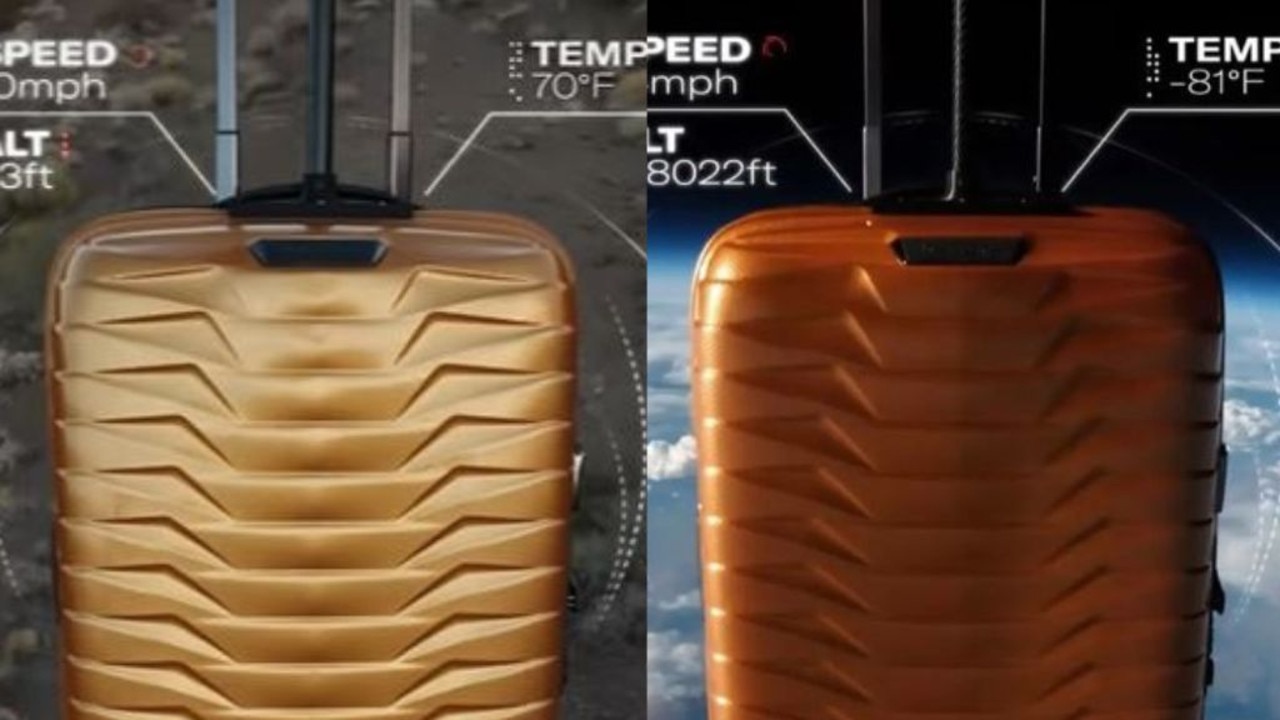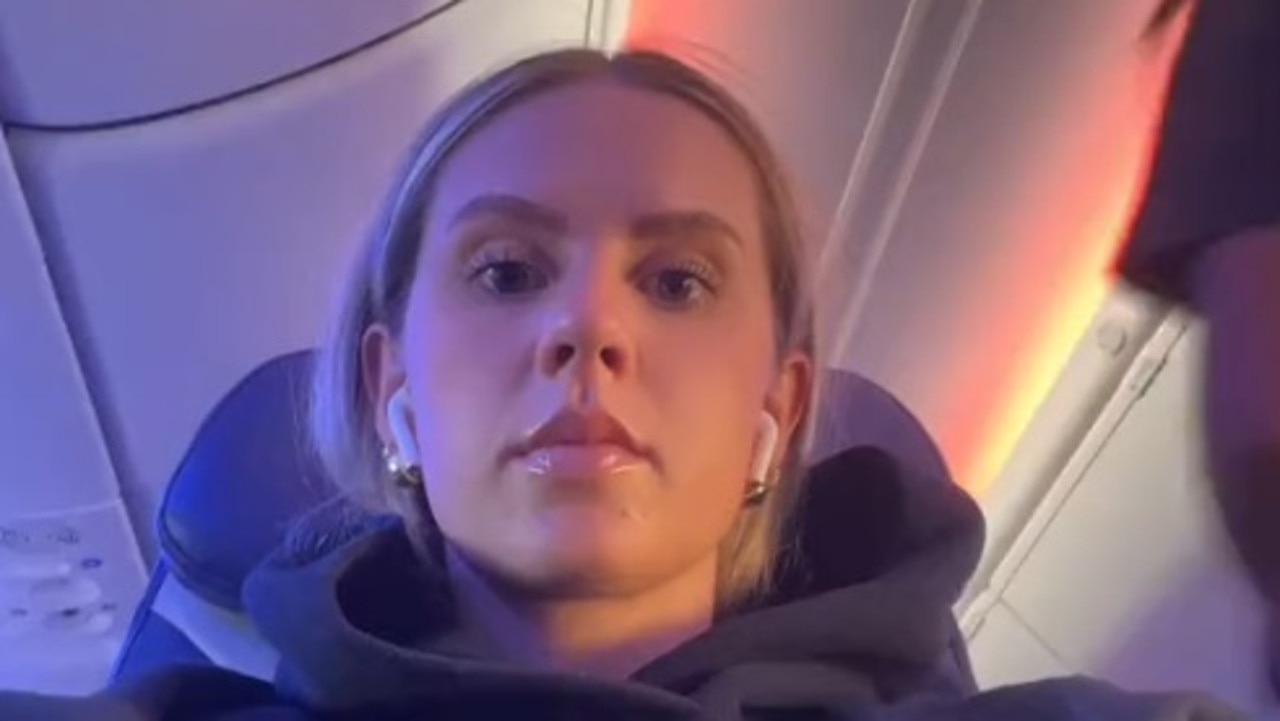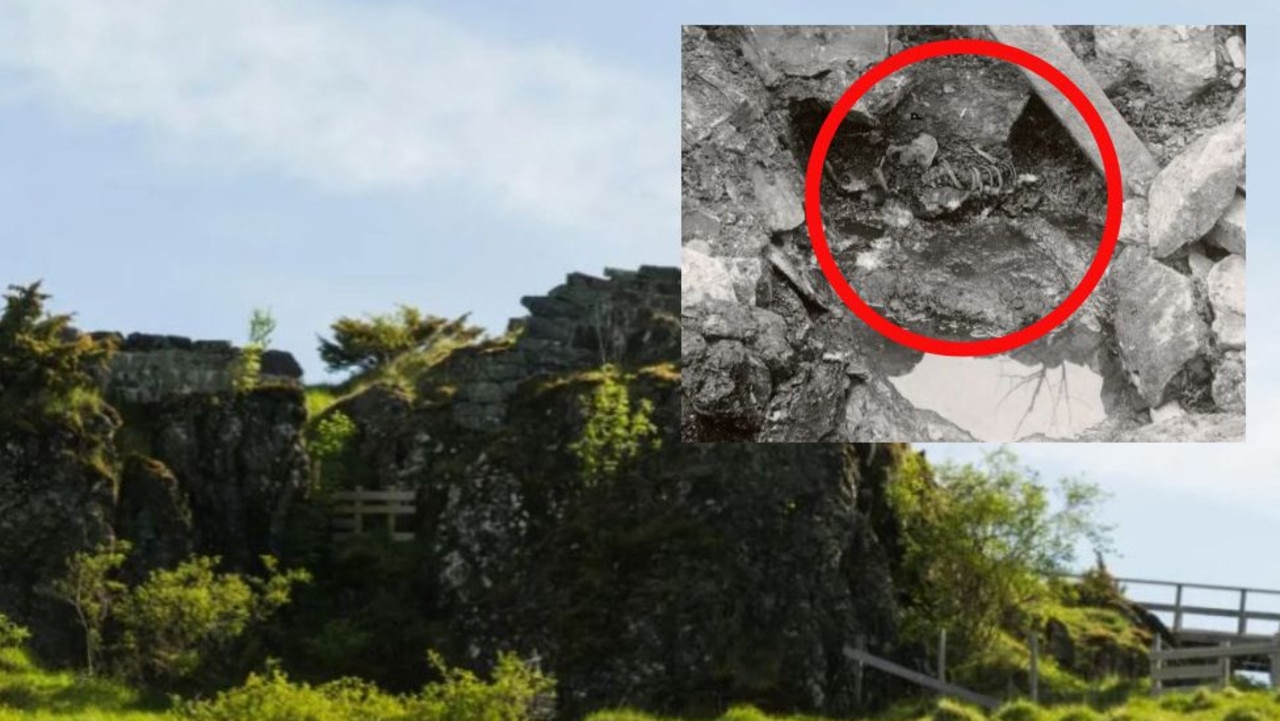Northern Lights, dog sledding: Dark city on everyone’s bucket list
It’s a location you wouldn’t think Aussies would be keen to visit given its mostly freezing conditions, but there’s a very good reason why it’s on everyone’s wish list.
It’s 10.30pm and we just stepped off the warm bus and into minus 25 degree temperatures. We are about to witness something truly spectacular, something I have been wanting to see for as long as I can remember. An astronomical phenomenon if you like, aka the Northern Lights.
We are about one hour outside of Tromsø — a tiny city in northern Norway with a population of about 64,000.
It sees the sun for two months of the year. But given it’s now January, during the Polar Night, the sun briefly peeks out over the horizon. This is due to the rotation of the earth and its tilted axis in relation to the sun.
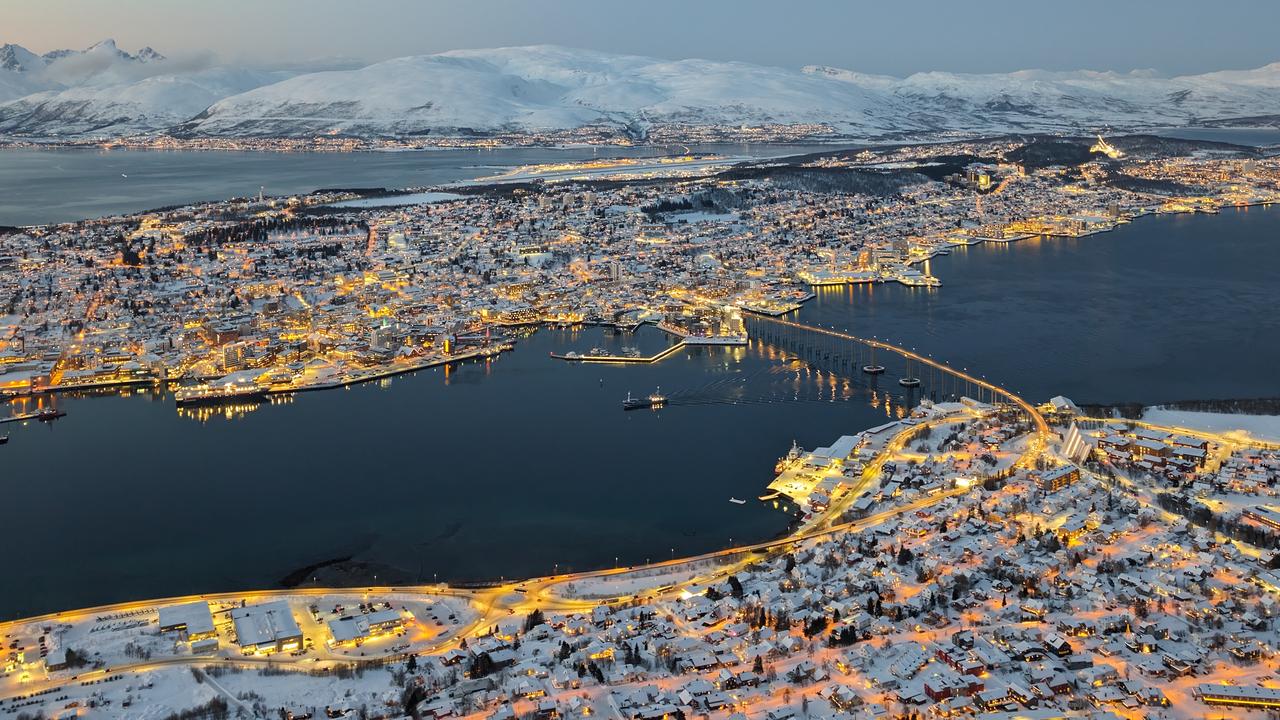
The country’s picturesque city of Tromsø, located more than 300km north of the Arctic Circle, is not only known for its cascading mountains and frozen fjords, but for being the best place on earth to see the Northern Lights due to its geographical location directly below the Northern Lights oval.
As aurora borealis, aka the Northern Lights are a natural phenomenon, there are never any guarantees, but we were told 2024 promises to have more frequent sightings and so we were hopeful that this natural wonder would come out to play.
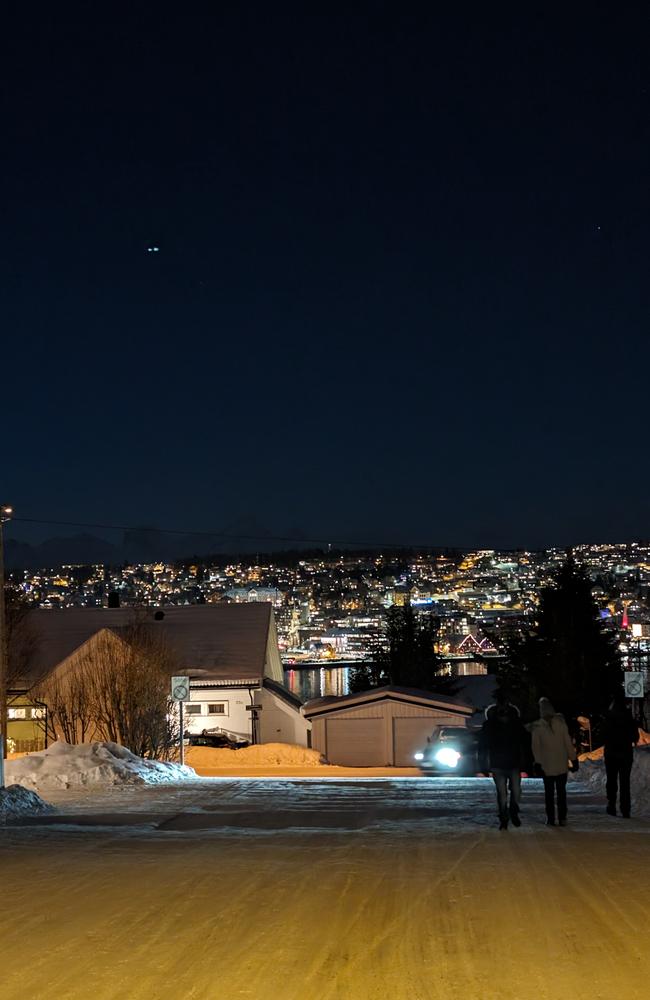
After all, we are in Tromsø where you can usually see it even when the activity is low and if you venture further afield you have more luck — and we did.
We are in Aurora Alps, Slettmovein — a one-hour bus journey from the city. And as I stepped foot off the bus and glanced into the night sky, I could ever so slightly see a green shimmer.
It then morphed into something stronger, as it continued to move and sway effortlessly above our heads. The green colour intensified and it was an unforgettable sight.
Award-winning Northern Lights photographer, Tor-Ivar Næss, was on the tour with us, told me that due to Tromsø latitude of 69 degrees and KP Index of 1-2 (a scientific rating of intensity), the tiny city is most popular for light viewings.
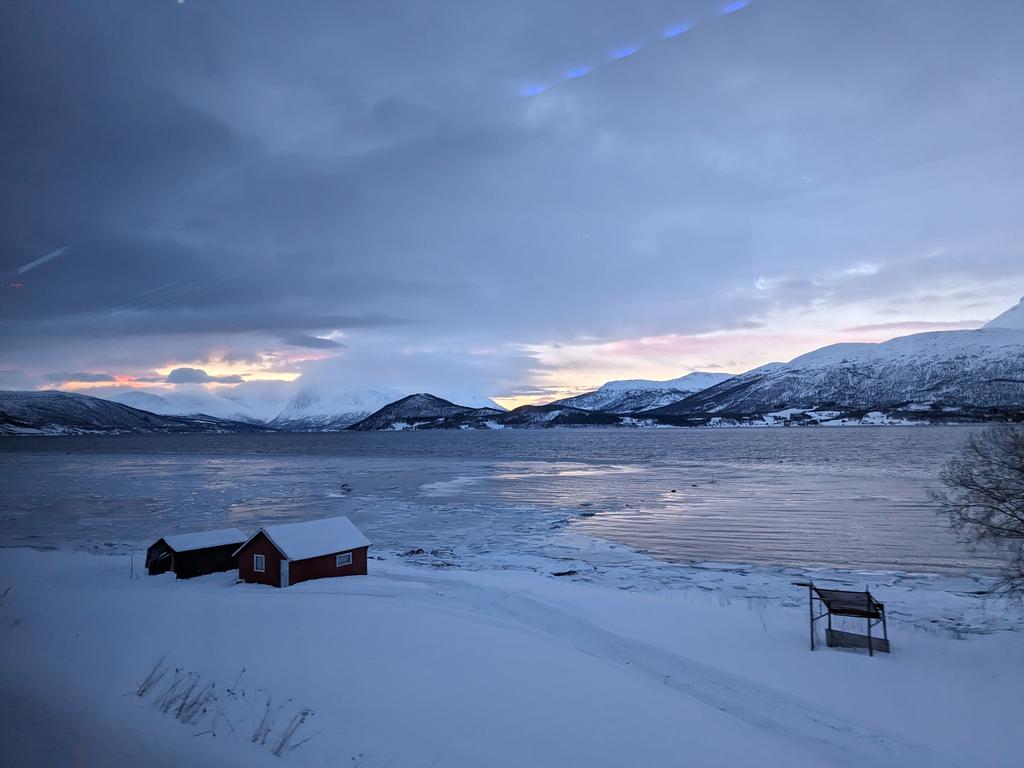
I quickly whipped out my smartphone — I have a Google Pixel 8 Pro – and began taking as many pictures as I could before running back on the bus to warm up and repeat the process again.
Our tour guide expected us to be out until 2am waiting for the lights, so we were lucky to have seen it as soon as we hopped off the bus.
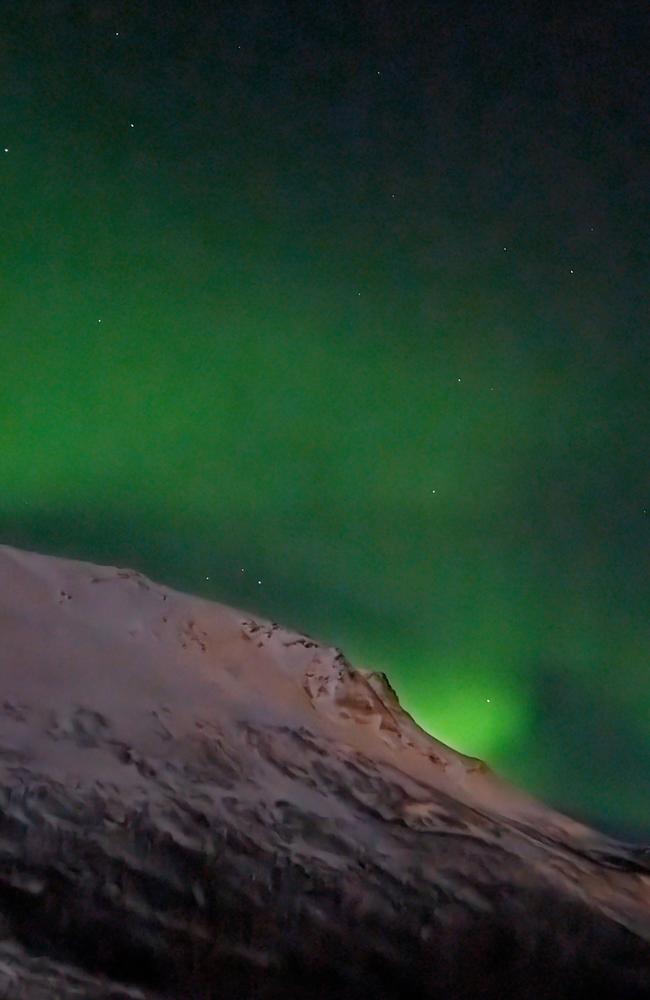
Tor was also surprised by its quick appearance and immediately set up his camera in the ankle-deep snow.
He has lived under the lights his entire life, but it wasn’t until he captured his first photo of it that he became obsessed.
“It was not a good one,” he joked, “But it was still the Northern Lights and from there it sparked my interest,” he told me.
“I was amazed because the camera would pick up colours that I did not see with my own eyes.”
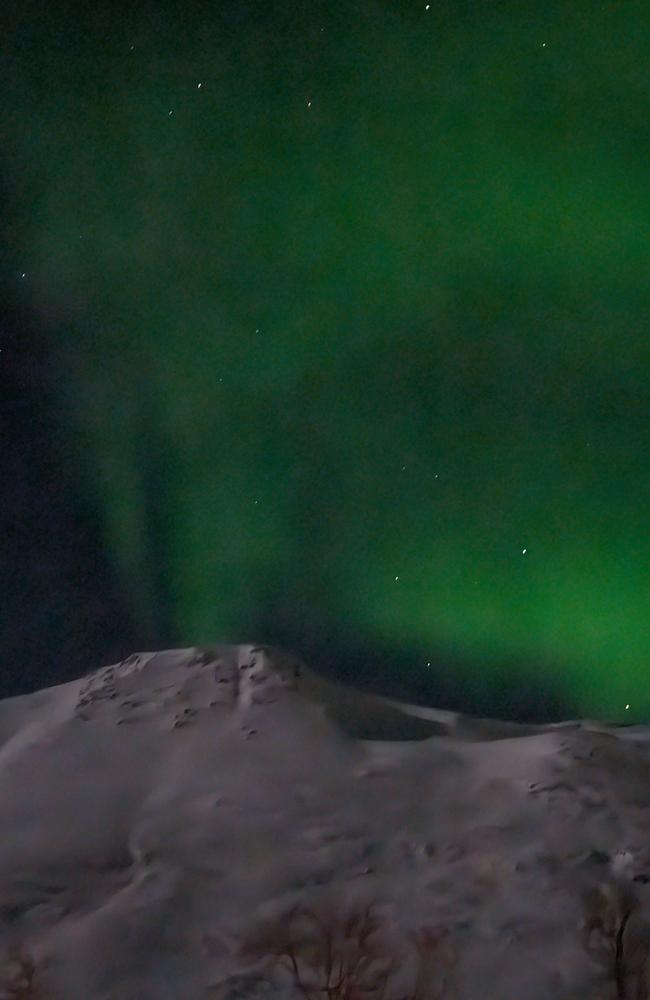
Tor managed to snap some unbelievable photos and while it’s worth bringing your top-notch camera, if you don’t have one (like me) you can still take some pretty impressive photos on your smartphone.
And if you’re on a tour, which I was, the guide will help properly adjust your settings to get the best images.
As we watched on, Tor said the Northern Lights will vary just as the weather on our planet, adding he likes to chase the lights between mid-September and November as more roads are open and weather conditions aren’t so extreme.
“Sometimes it’s cloudy, sometimes it’s a good sunset, sometimes it’s dim — it’s just a numbers game, really.”
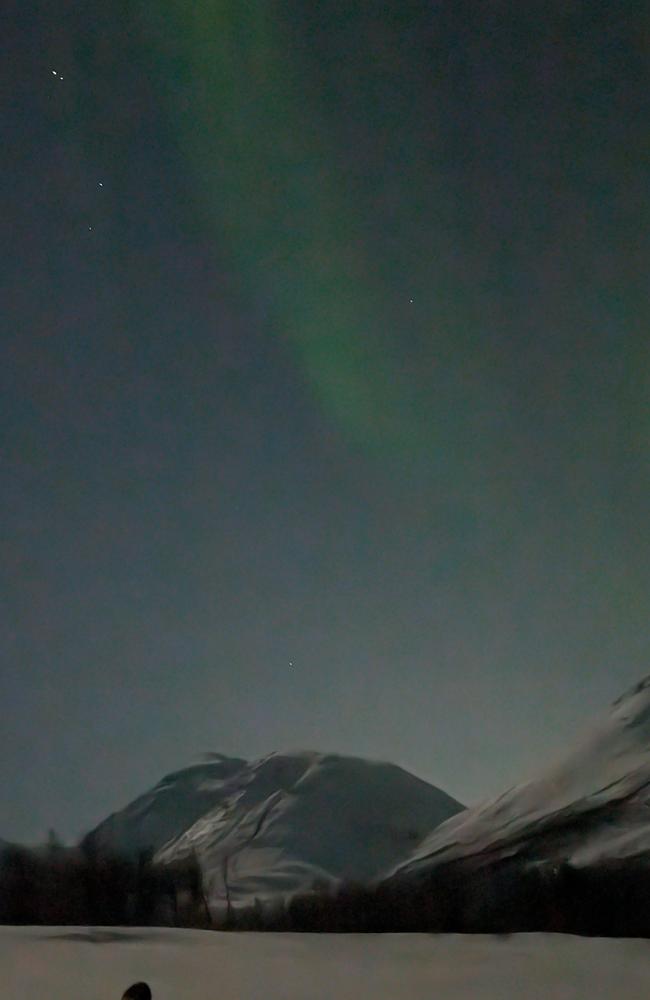
If you’re wondering what causes the Northern Lights, it’s solar winds, which blow electronic particles into molecules of atmospheric gases, causing an emission of bright light.
It’s basically created when energised particles from the sun slam into earth’s upper atmosphere at speeds of up to 72 million km/h.
Most Northern Lights are green in colour but sometimes you’ll see a hint of pink, red, violet and white colours.
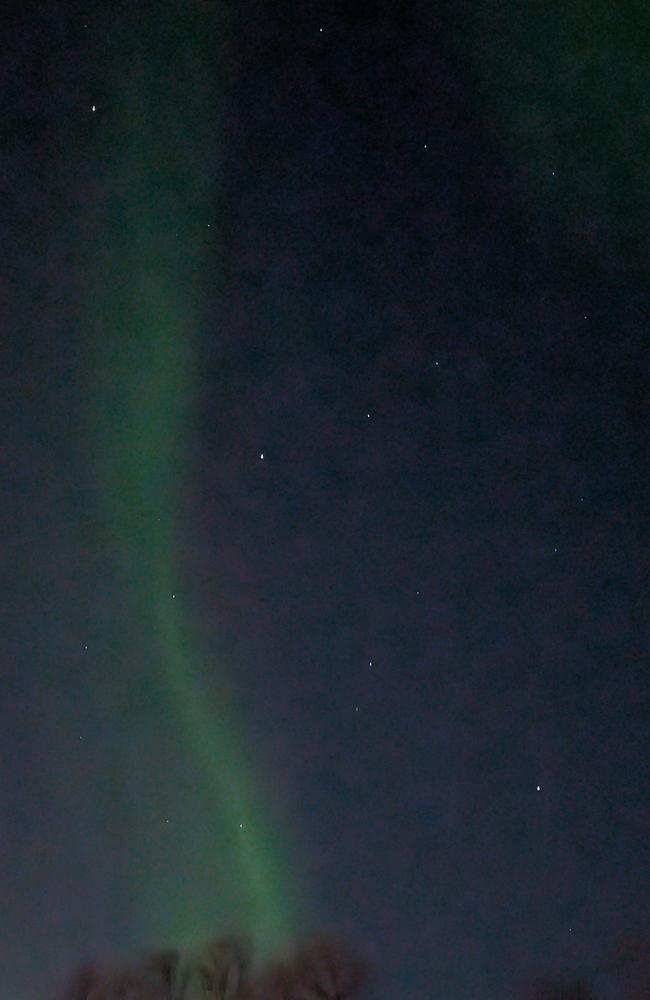
It’s a majestic and mesmerising light show that you have to experience once in your life.
In fact, it’s a bucket list trip for most Aussies with Expedia revealing around 57 per cent want to see it at least once in their life.
It even beat Egypt’s Pyramids (44 per cent) and Japan’s cherry blossom season (43 per cent).
“With the next couple of years set to deliver the most aurora borealis activity in two decades, Expedia is already seeing a 40 per cent increase in demand for Tromsø as many Aussies plan to make their bucket list experience a reality,” Sarah King, Travel Expert at Expedia told news.com.au.
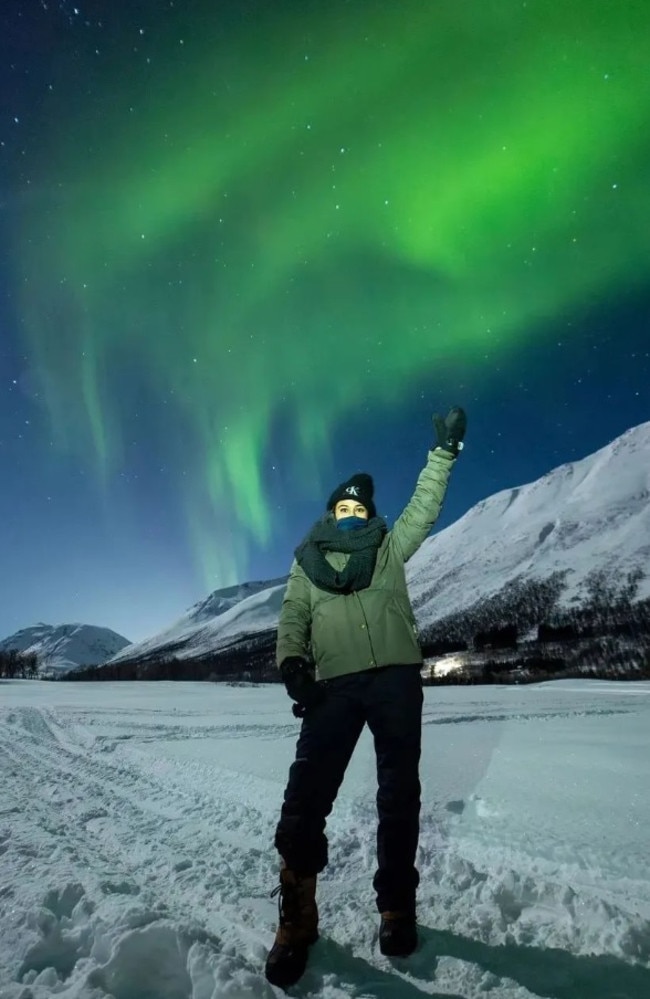
She said while a trip to northern Norway in the middle of the Aussie summer is not a typical holiday for many, travel is all about creating new experiences and getting outside of your comfort zone and it certainly delivers in that respect.
“From the polar night, with only a few hours sunlight a day, to up to minus 30-degree weather, sledding with huskies and that first moment seeing the aurora borealis, it’s a magical and awe-inspiring destination filled with so much natural beauty.”
It’s best to book a tour, it just makes it all so much easier as you don’t have to stress about where to go, how to get there and what to look for.
We did the Norwegian Travel tour for around $200 but Expedia also offer one for roughly $258 per person. Prices vary depending on when you go.
Apart from the Northern Lights, there are plenty of other things to do in Tromsø, so if the lights don’t come out to play, you can still make the most of your trip. Some are listed below.
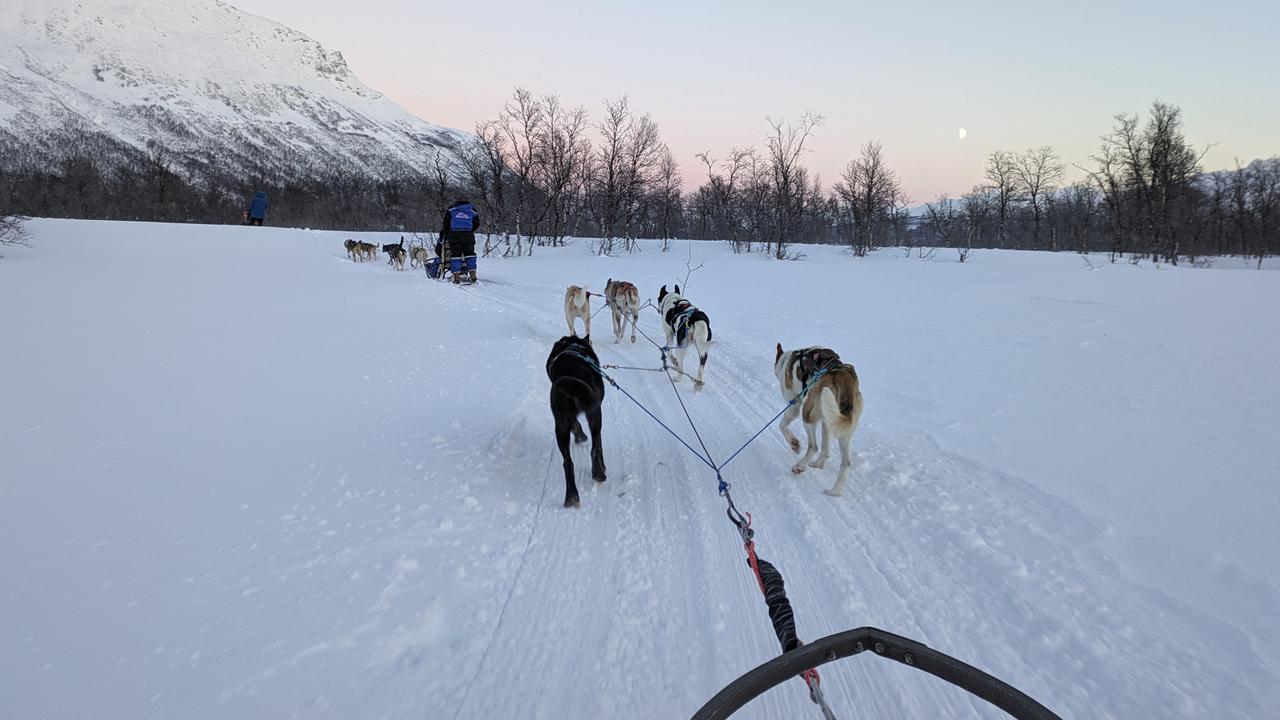
Husky sledding
I couldn’t wait for the husky sledding experience. I was able to drive my own team of huskies and boy, were they energetic.
On top of the already four layers of clothing I was wearing, they gave us what looked like a spacesuit to put over it. It was minus 30 and we were told we’d be out there for an hour, so I welcomed it.
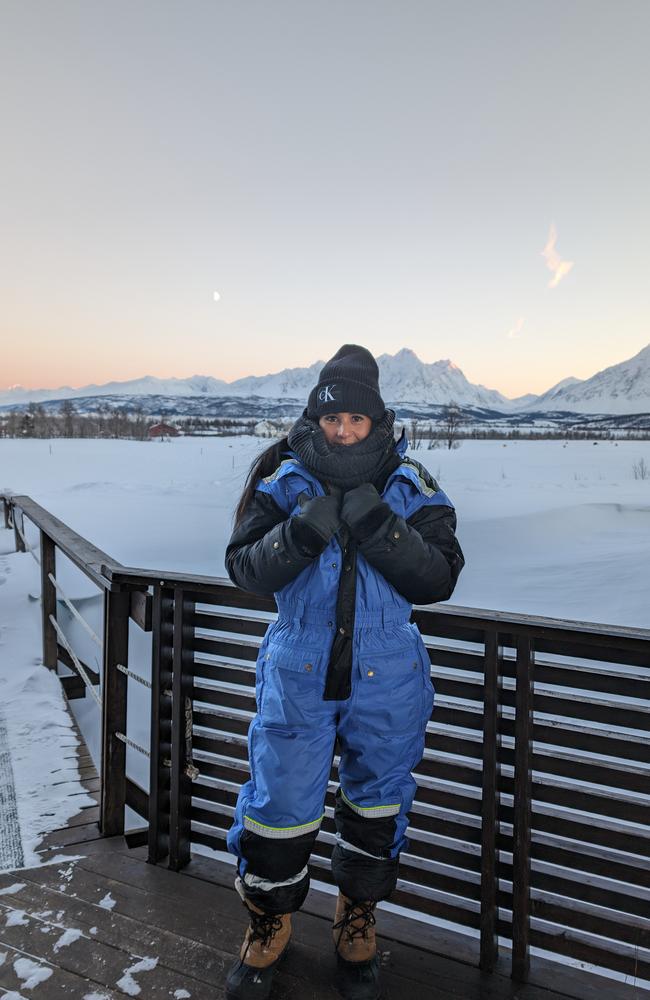
After the safety briefing which was basically “don’t let go of the sled or the dogs will keep running”, we hopped on, with one person steering and the other sitting.
It was a wild experience — I almost fell off but luckily I had a firm grip of the bar.
The view was unlike anything my eyes had ever seen before — cascading snowy mountains with the sun’s rare appearance creating a backdrop of blues, pinks and oranges, in the morning sky.
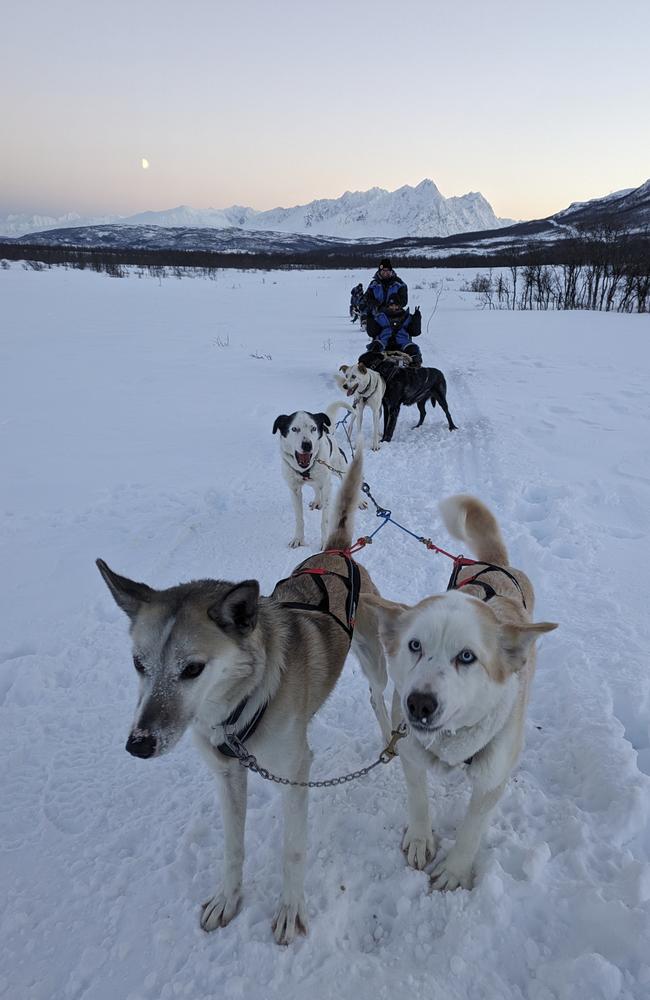
I decided to whip out my phone (when I was seated of course), to take a few quick snaps, but immediately regretted it because it was painfully cold. Tip: Wear touchscreen gloves.
This was when I was truly grateful for the GoPro Hero 12 that I strapped to my chest last minute.
I thought it was going to be a headache trying to fit the Chesty Mount over my huge space suit and then work out how to record in these Arctic conditions, but it was pretty easy.
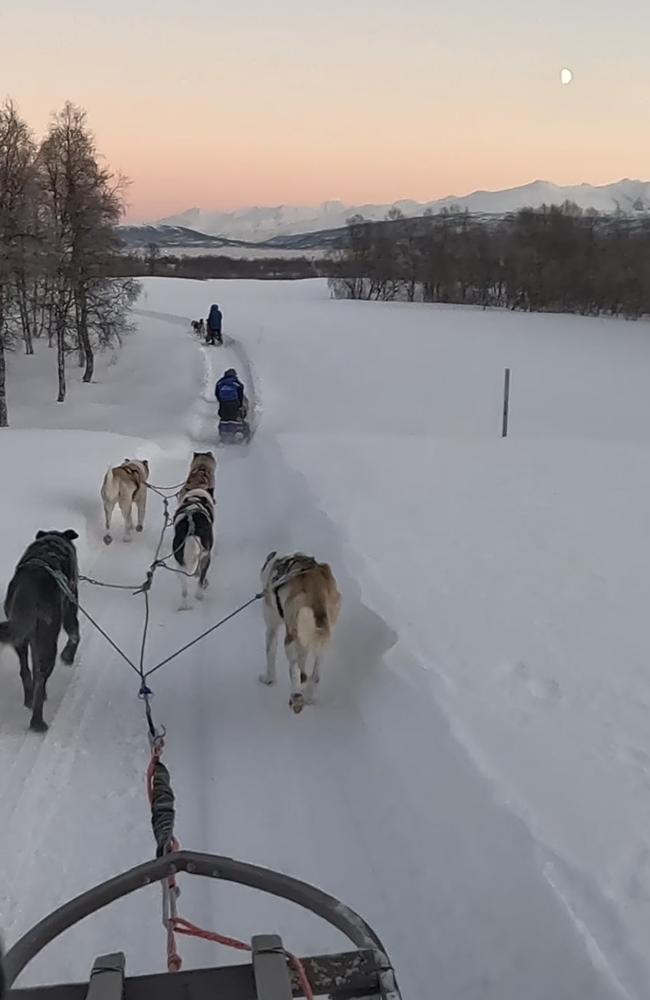
I was also worried it wouldn’t survive the minus 30 conditions — but not only did it take some awesome footage, it was surprisingly clear and not blurry from the intense weather.
The dogs bolted through the snow, with each sled following the other at speeds of about 20km/h. The air was fresh, the view was spectacular and it was truly an unforgettable experience.
The dog sleigh has been used for centuries throughout the arctic region, mainly for travel, hunting and transport. So it was pretty cool to tick this traditional experience off my list.
It costs roughly $250 per person.
Reindeer sledding
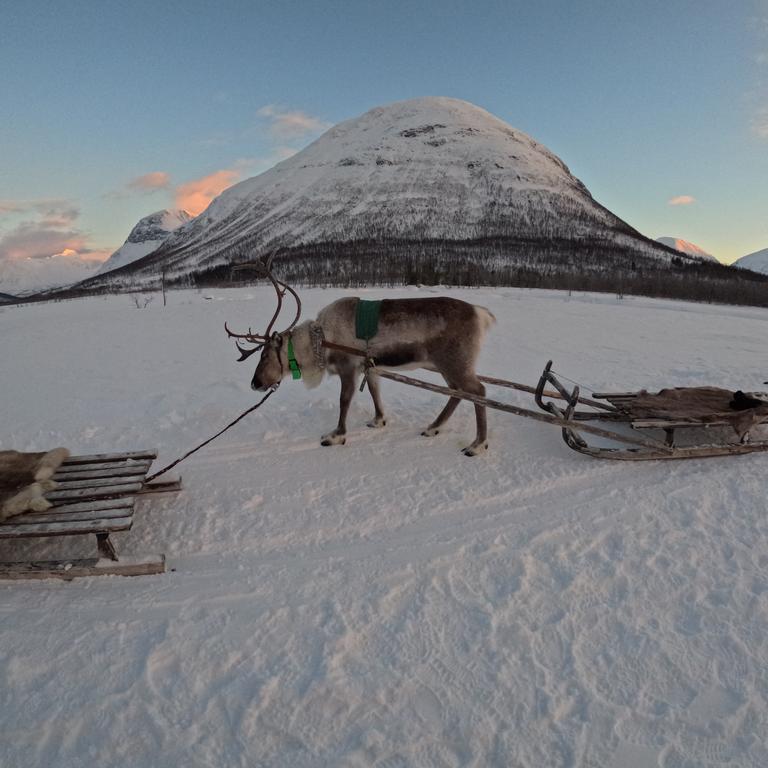
The reindeer sledding experience is about 45 minutes outside of Tromsø and is another must-do activity. You not only get to have a wonderful, relaxing experience hanging with the reindeers and feeding them, but you also learn about Sami culture from a member of a Sami reindeer herding family.
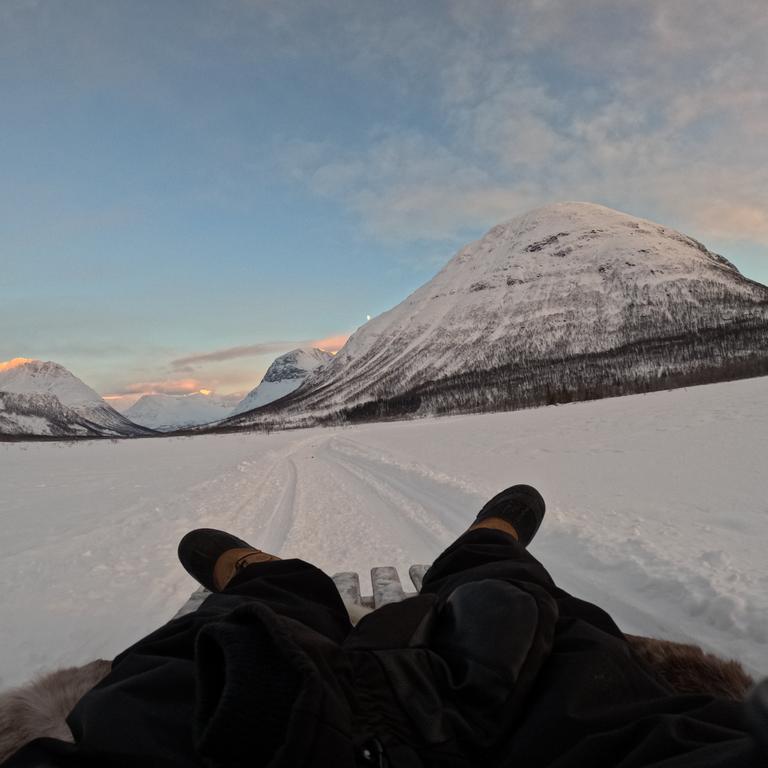
They also sort you out with gear to wear as you’re spending long periods outside. After they serve you a lovely, warm lunch, your adventures continue with a guided tour of the Ice Domes.
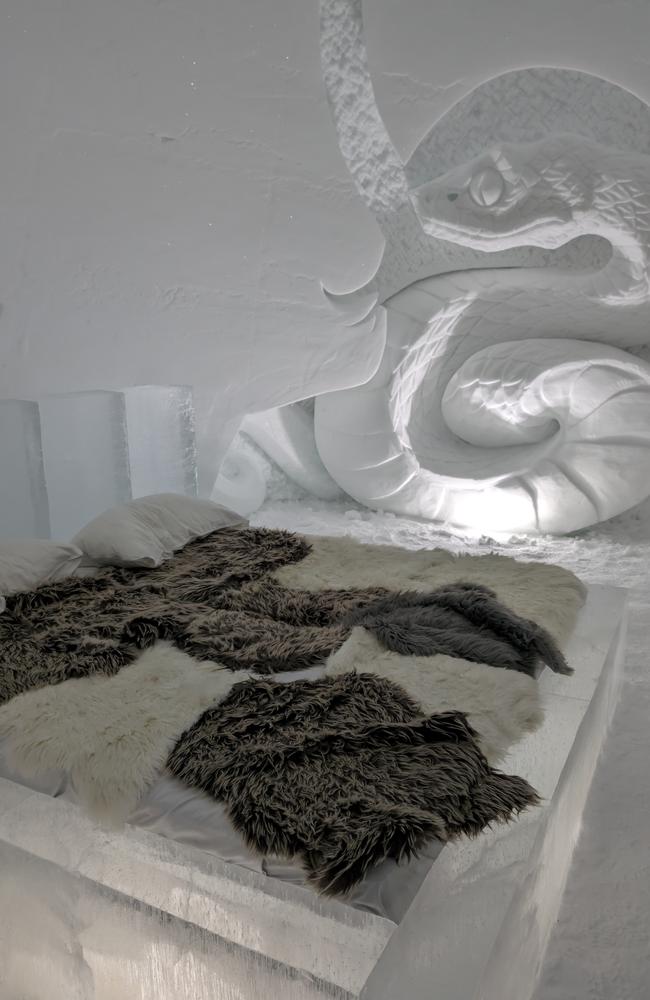
You can even spend the night there which is pretty cool but it’s just not my thing, so I didn’t do it. Everything is made from snow and ice, even the beds, but they do have a mattress – luckily.
They give you the proper clothing too for the minus five degree temperatures. I was told it’s almost always booked out. It costs roughly $2,500 a night.
What to wear during winter Tromsø
Aussies aren’t usually equipped for these freezing conditions. So, the first thing I did was head to Uniqlo to stock up thermal tights and tops. It’s all about the layering. I then headed to Kathmandu to nab a pair of their loose, Miro tapered pants — which I wore religiously over my two pairs of tights. I also nabbed their Winterburn wind and waterproof down coat which was super warm and perfect for dinners and exploring the township at night. And of course, thermal, insulated winter boots. This is a must because your toes will get cold, and it’s not fun. I got the Oboz bangtail waterproof boots with a design that stops you from slipping and sliding on icy roads.
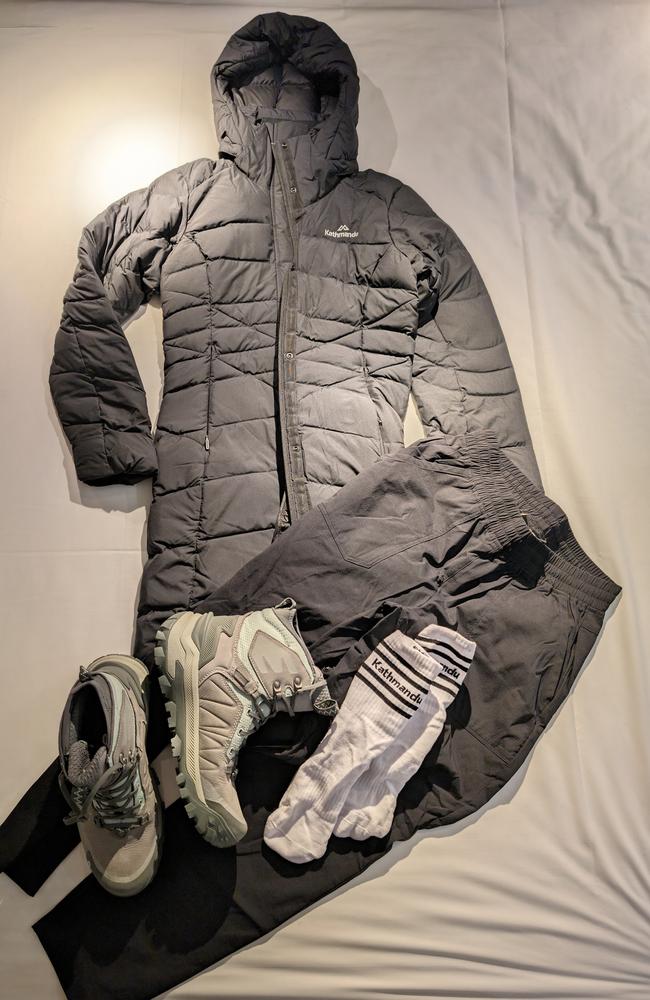
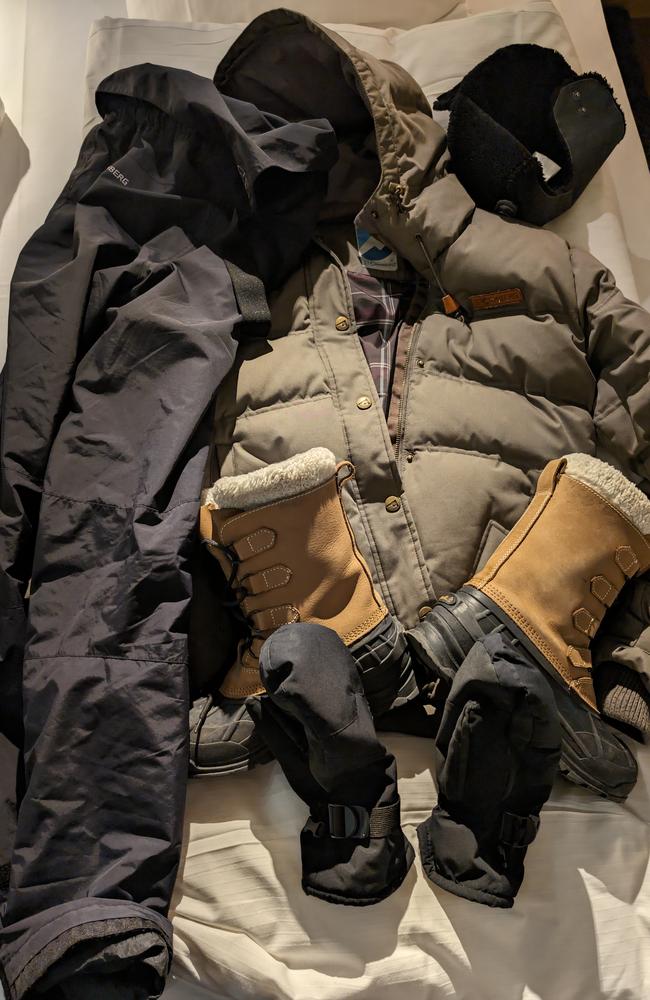
Another hot tip is to buy hand and body warmers – they worked a treat. It’s important to have your feet breathe for circulation purposes, so don’t go too crazy with the layering of socks.
Another recommendation is to hire arctic gear while you’re there. This helped so much when spending long periods outside. Even though the tours provide the gear — it’s always good to have your own hired clothes so you can wear it whenever you want, depending on what you do. It costs about $72 a day and includes a thermal jacket, boots, gloves, hat and waterproof pants. It’s also a budget-friendly alternative.
Is chasing the Northern Lights expensive?
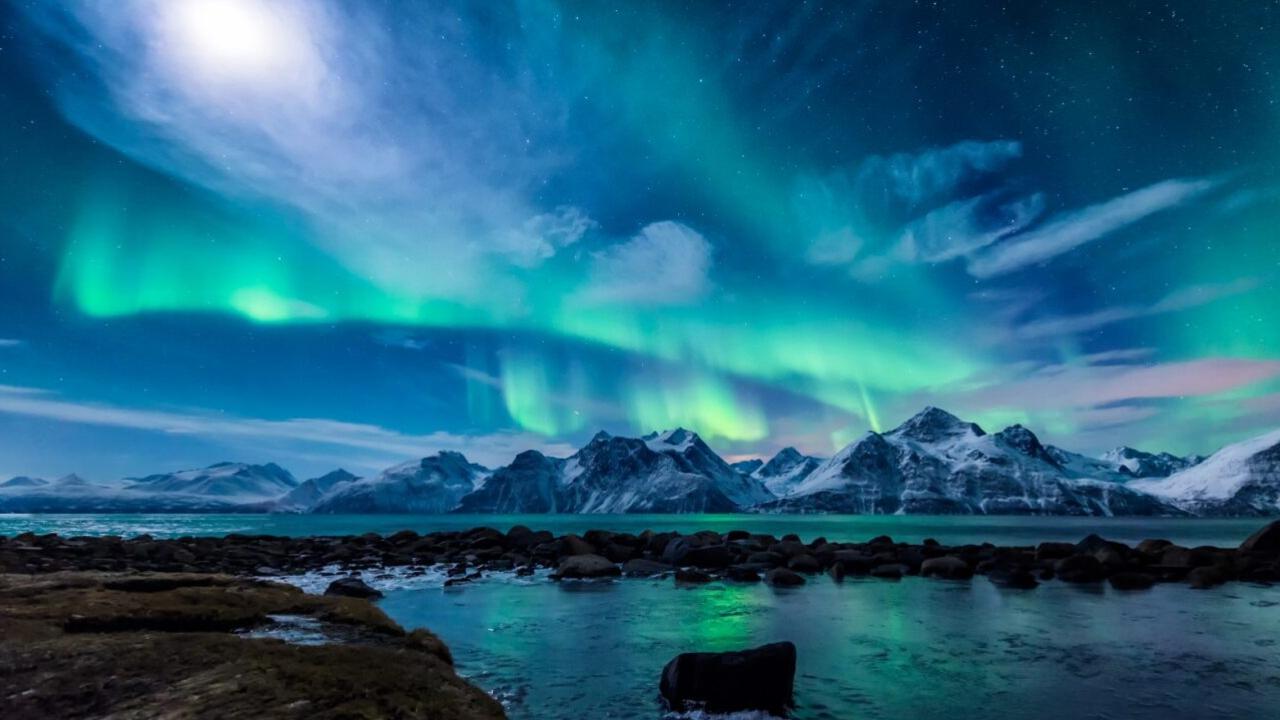
According to Expedia, 70 per cent of Aussies have not travelled to Norway to view the Northern Lights due to financial reasons.
While it can be seen as a bigger investment than other holidays, many consider it a once-in-a-lifetime experience and are willing to fork out the extra dollars to make it happen. Visiting Norway in Winter is beautiful, with an array of activities and experiences, but you may have a better chance of seeing the lights in the off-peak months between September and April.
“The most affordable time to go to Tromsø for the lights is in April with daily hotel rates historically averaging $225, which is $121 less per night compared to February,” Ms King said.
“With an Expedia package, you can experience a week at The Clarion Hotel The Edge, Tromsø, for a total of $3,468 per traveller, including flights from Sydney between March 24 to March 31.”
More Coverage
While it may not be as cheap as other trips, if it’s on your bucket list and something you plan on doing once in your life, it’s an experience worth saving for.
“The feedback we have heard from travellers is that it’s well worth the journey and there’s no better time to visit than in the next couple of years,” Ms King added.
This writer visited Tromsø as a guest of Expedia




